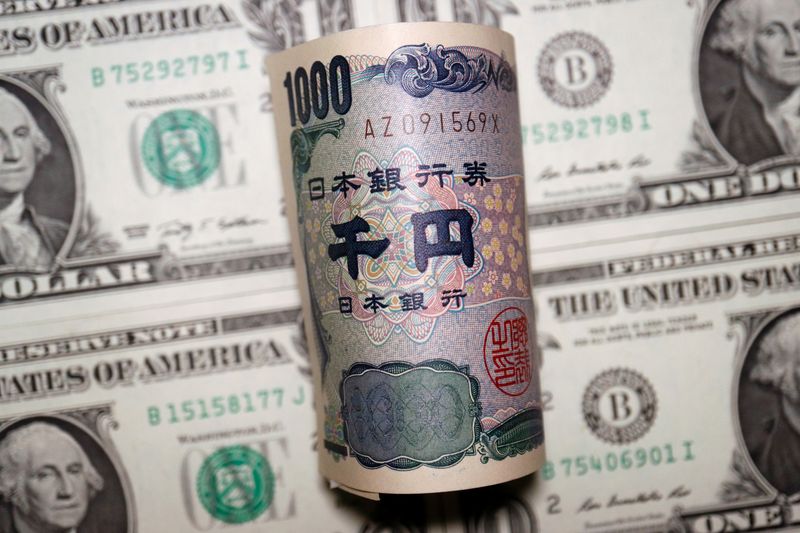United Homes Group stock plunges after Nikki Haley, directors resign
Investing.com-- Most Asian currencies weakened on Friday amid uncertainty over U.S.-China trade tariff talks, with the Japanese yen leading losses following stronger-than-expected Tokyo inflation data.
The US Dollar Index, which measures the greenback against a basket of major currencies, jumped 0.5% after declining in the previous session.
The greenback faced significant volatility this week amid President Donald Trump’s remarks on the Federal Reserve, China tariffs.
Mixed signals on U.S.-China trade talks stir uncertainty
Earlier this week, Trump hinted at potential trade negotiations with China, saying a potential deal could lead to a “substantial” reduction in tariffs. But "it won’t be zero," he added.
The Wall Street Journal reported on Wednesday that the Trump administration was considering reducing tariffs on Chinese imports to de-escalate trade tensions.
However, China on Thursday stated that no trade discussions have taken place with Washington, countering repeated claims by the U.S. government that talks had occurred.
Despite this, President Trump asserted that trade talks between the U.S. and China are underway.
A Bloomberg report on Friday showed that China’s government is weighing the exemption of some U.S. goods from its 125% import tariffs.
These developments eased some tensions but sparked renewed uncertainty around Trump tariffs.
The Chinese yuan, both onshore USD/CNY and offshore USD/CNH pairs, were largely muted on Friday.
The Australian dollar’s AUD/USD inched 0.2% higher.
The Singapore dollar’s USD/SGD rose 0.3%, while the Indian rupee’s USD/INR pair was steady.
The South Korean won’s USD/KRW pair advanced 0.4%.
The Malaysian ringgit’s USD/MYR inched 0.2% higher, while the Indonesian rupiah’s USD/IDR ticked 0.1% higher.
Japanese yen drops; strong Tokyo CPI complicates BOJ rate path
The Japanese yen’s USD/JPY jumped 0.7% on Friday.
Data showed that Tokyo’s core inflation climbed to 3.4% year-on-year in April, up from 2.4% in March and above the 3.2% market consensus, driven by broad-based price gains in services and housing.
The steady rise in inflation complicated the rate outlook for the Bank of Japan officials amid global uncertainty sparked by Trump tariffs.
“Given the high level of uncertainty surrounding US trade policy, the BoJ is likely to keep its policy rate on hold at next week’s meeting,” ING analysts said in a note.
“We believe that the BoJ will tighten when things become clearer, which will see the JPY appreciating further,” they added.
